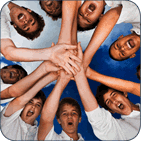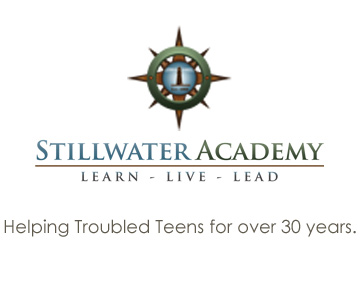Programs for Depressed Teens
Directory of Programs for Depressed Teens
| Academy, The Therapeutic Boarding School |
|||||
| Co-ed | Ages: 12-18 | Oregon | $4,900/mo. | ||
| Diamond Ranch Academy Therapeutic Boarding School |
|||||
| Co-ed | Ages: 12-17 | Utah | $5,100/mo. | ||
| Sorensons Ranch School Therapeutic Boarding School |
|||||
| Co-ed | Ages: 13-17 | Utah | $5,500/mo. | ||
| Cinnamon Hills Residential Treatment Center |
|||||
| Co-ed | Ages: 12-18 | Utah | $9,000/mo | ||
| Falcon Ridge Ranch Residential Treatment Center |
|||||
| Girls | Ages: 12-17 | Utah | $7,800/mo. | ||
| Integrity House Residential Treatment Center |
|||||
| Girls | Ages: 12-17 | Utah | $5,300/mo. | ||
| Rancho Valmora Residential Treatment Center |
|||||
| Co-ed | Ages: 12-17 | New Mexico | $180/day | ||
| Red Rock Canyon School Residential Treatment Center |
|||||
| Co-ed | Ages: 12-17 | Utah | $7,000/mo. | ||
| Rite of Passage Residential Treatment Center |
|||||
| Co-ed | Ages: 10-20 | Nevada | $130/day | ||
| Three Springs Residential Treatment Center |
|||||
| Boys, Girls | Ages: 10-17 | Alabama | $125-140/day | ||
| Turnabout - Stillwater Academy Residential Treatment Center |
|||||
| Co-ed | Ages: 12-20 | Utah | $7,850/mo. | ||
| Tyler Ranch Residential Treatment Center |
|||||
| Boys | Ages: 6-18 | Washington | $2,500/mo. | ||
| Alldredge Wilderness Journey Wilderness Program |
|||||
| Co-ed | Ages: 13-17 | West Virginia | $300-395/day | ||
| Catherine Freer Wilderness Program |
|||||
| Co-ed | Ages: 12-17 | Oregon | $445/day | ||
| RedCliff Ascent Wilderness Program |
|||||
| Co-ed | Ages: 13-17 | Utah | $440/day | ||
Parenting Depressed Teens
Are you parenting a drepressed teenager? Teen depression is a serious issue, but can be helped when you know the symptoms. Though the term "depression" can describe a normal human emotion, it also can refer to a mental disorder. Depressive illness in teenagers is defined when the feelings of depression persist and interfere with the teen's ability to function.
Depressed youth often have problems at home. In many cases, the parents are depressed, as depression tends to run in families. Over the past 50 years, depression has become more common and is now recognized at increasingly younger ages. As the rate of depression rises, so does the teen suicide rate.
Symptoms of teenage depression include: persistent boredom, difficulty with relationships, increased irritability, poor concentration, change in sleep or eating patterns, suicidal thoughts, running away, drug abuse, self-injury, hopelessness, social isolation, low self esteem, and/or sadness.
There are a wide number of different types of effective therapeutic approaches utilized for the treatment of depression today. These range from cognitive behavioral therapy, to behavioral therapy, to interpersonal therapy, to rational emotive therapy, to family and psychodynamic approaches. Both individual and group modalities are commonly used, depending upon the severity of the depressive episode and the local resources within an individual's community.
Programs that Can Help Depressed Teens
Programs that help treat depressed teens include boarding schools, residential treatment centers, wilderness programs, and boot camps. Most frequently treatment programs will use cognitive behavioral therapy as an approach to treating depression.
Cognitive-behavioral therapy is the most popular and commonly used therapy for the effective treatment of depression. Hundreds of research studies have been conducted to date which verify its safety and effectiveness in use to help treat people who suffer from this disorder. Aaron T. Beck is the father of this therapeutic technique and he has authored books and studies supporting cognitive-behavioral therapy. Consisting of a number of useful and simple techniques which focus on the internal dialogue which takes place within a person's mind, cognitive-behavioral therapy is not concerned with causes of the depression so much as what a person can do, right now, to help change the way they are feeling.
Programs for Depressed Teens - eProgramSearch.com
List OptionsWant to save time? Contact all these Programs at once!
My Saved Lists:
Empty  Learn More About: |




